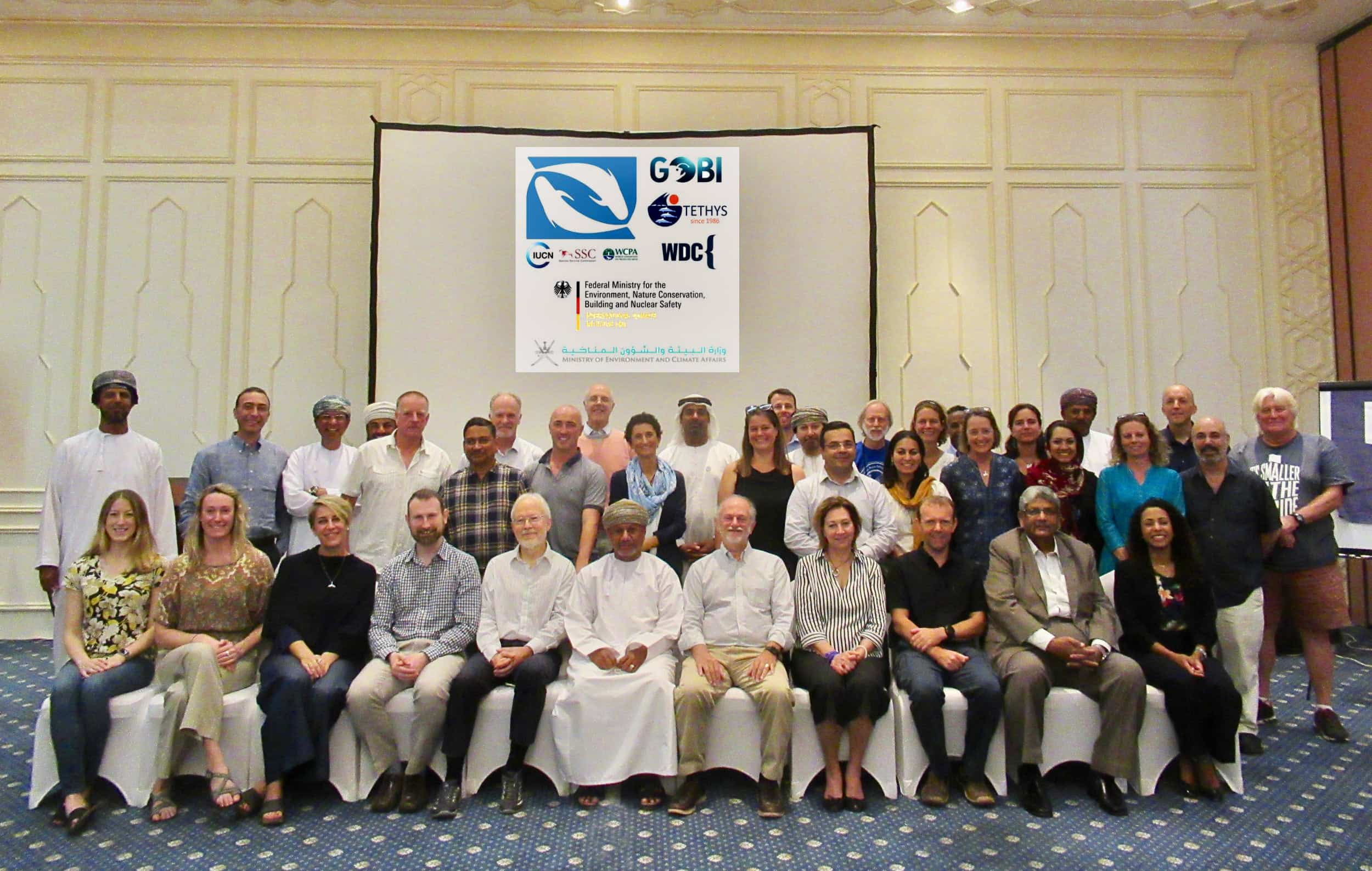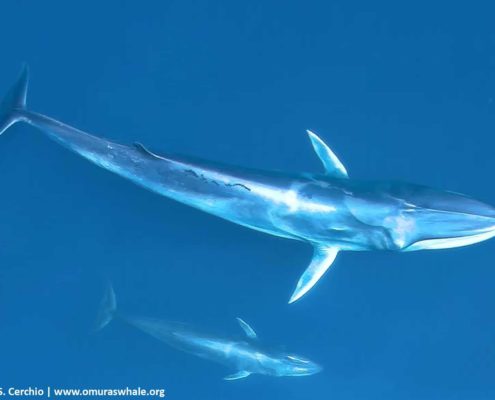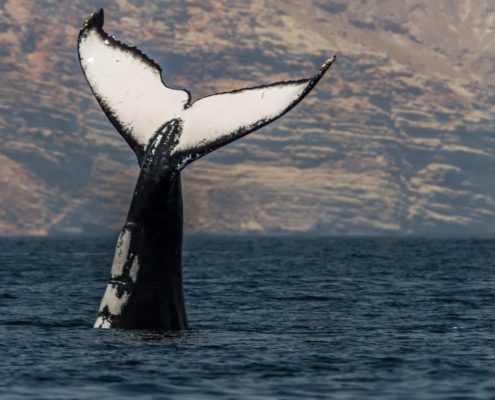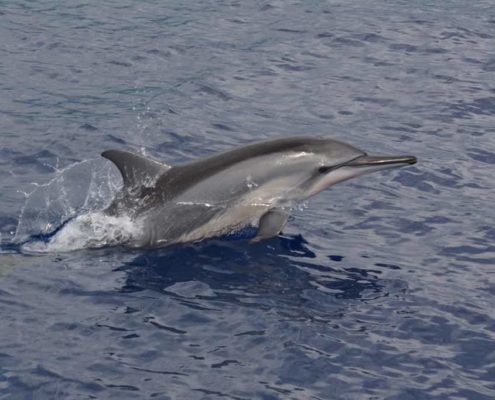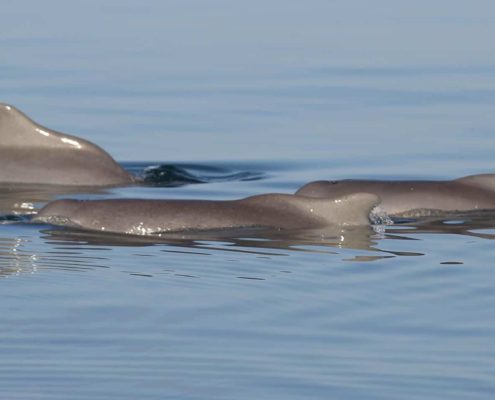Regional Coordinators: Gill Braulik, Violaine Dulau, Gianna Minton
Cetacean research and conservation networks operating in the region:
- Indian Ocean Network for Cetacean Research (INDOCET)
- Arabian Sea Whale Network
- SouSa Project (South Africa)
The Western Indian Ocean and Arabian Seas IMMA identification workshop took place on March 4th-8th 2019. The workshop was held in Salalah, Oman, and involved 38 marine mammal scientists and observers from 15 countries, with several more scientists contributing to assessments and proposals remotely.
The final report of the workshop can be downloaded from here.
A total of 55 candidate important marine mammal areas, (cIMMAs) were identified which is the largest number proposed from a single workshop to date. Thirteen areas of interest (AoI) were identified as areas where further research is merited. The cIMMA proposals have now undergone peer review, and 37 new IMMAs have now been added to the eAtlas.
IMMA-related activities and accomplishments in the Western Indian Ocean-Arabian Sea region during 2019 include the following:
- Preparation for, and completion of an IMMA Assessment workshop in Salalah, Oman from March 4-8, 2019;
- 108 Areas of Interest (AoI) were submitted before and during the meeting, resulting in a total of 54 candidate IMMAs (cIMMAs), and finally 37 IMMAs following the review.
- These 37 new IMMAs were posted on the eAtlas on December 9th, 2019, in time to be included in a formal press announcement during the World Marine Mammal Conference in Barcelona.
- While the WIO-AS regional expert group could not undertake too many concrete activities prior to the formal review and publication of the IMMAs on the eAtlas, the group is supported by a dedicated page on the MMPA Task Force Site and Google-Group email list that facilitates communication. This Google Group was used to spark a discussion and concern about a candidate IMMA in Mozambique.
- The Google-Group, and various other communication channels, including those used by the Indian Ocean Network for Cetacean Research and the Arabian Sea Whale Network are now poised to help spread the word about WIO-AS IMMAs and to begin outreach to regional stakeholders that can begin to use IMMAs in their marine spatial planning, designation of marine protected areas and mitigation of the potential impacts of human activities within IMMAs. Targeted stakeholders include the Western Indian Ocean Marine Science Association (WIOMSA), the Indian Ocean Rim Association (IORA), and theROPME Sea Area, among others.
- In December 2019, the Task Force chairs visited, one of the new WIO IMMAs – the Bazaruto Archipelago to Inhambane Bay IMMA, in southern Mozambique, the last stronghold of the dugong in East Africa. The Task Force held meetings to inform stakeholders and government about the new IMMA and explore ways to protect the dugong population. A full report of the visit can be found here.
- Presented the new IMMAs to the Indian Ocean Tuna Commission meeting in La Reunion.
An Omura’s whale mother and calf off the coast of Madagascar (Sal Cerchio)
The West Indian Ocean and Arabian Seas region hosts a wide diversity of habitats and marine mammal species, including endangered humpback dolphins, endangered blue whale subpopulations, the rarest humpback whales in the world – the Arabian Sea humpback whale, and the largest known numbers of Omura’s whale, a cryptic 10m long tropical whale only recently identified as a species by scientists. The region is also home to vulnerable populations of dugongs, that persist in pockets along the coasts of East Africa, the Middle East, and West Asia. A recent mission was made by a Task Force delegation to Mozambique to support the protection of a threatened population of dugongs in the “Bazaruto Archipelago to Inhambane Bay Important Marine Mammal Area IMMA” – the last viable dugong population in East Africa. The mission’s report can be dowloaded from here.
An Arabian Sea humpback whale (Environment Society of Oman)
Spinner dolphin off the coast of Reunion (Violaine Dulau)
Indian Ocean Humpback dolphins off the coast of Zanzibar (Gill Braulik)

